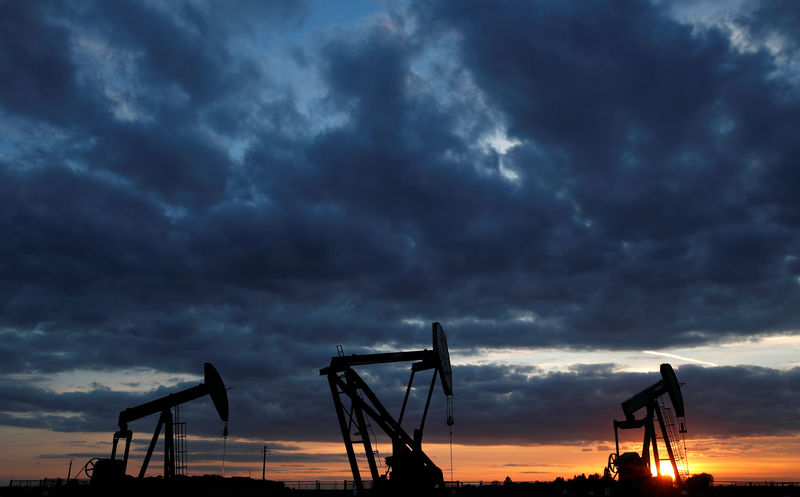(Bloomberg) -- Oil extended its biggest decline in almost three months as increasing doubts over the strength of a demand recovery and falling equities soured market sentiment.
Futures in New York fell 1.2%, after plunging 7.6% on Tuesday as Brent crude settled below $40 a barrel for the first time since June 15. Asia’s stalling demand recovery, the end of the U.S. summer-driving season and increased supply from OPEC and its allies signal a bleak short-term outlook for oil prices. Both benchmarks are trading in a pattern known as contango, where the most immediate prices are far below those for supply contracts in later months.
Market signals point to more downside risk for oil prices. The difference between the two nearest December contracts -- a closely watched gauge of market strength -- weakened for both Brent and WTI to their largest contango structure since May, pointing to concerns of oversupply.
The widening contango combined with a slump in tanker rates, may also encourage traders to seek floating storage. Storing crude at sea has become profitable again for northwest Europe and the Mediterranean, shipbroker and exchange data compiled by Bloomberg show. At the same time, oil traders have begun seeking out available U.S. onshore storage, according to The Tank Tiger, an independent brokerage and consulting clearinghouse.
Read: Oil Glut Trade on the Brink of Making Comeback in Blow for OPEC+
Brent crude’s break below $40 a barrel follows two months of the global oil benchmark holding largely between $42 and $45 a barrel. The coronavirus pandemic is still raging and Bank of America Merrill Lynch (NYSE:BAC) said it will take three years for global oil demand to recover from Covid-19, assuming there is a vaccine or a cure.
Meanwhile, only four of 10 Asian refiners surveyed by Bloomberg said they would be trying to buy more Saudi Arabian crude after the kingdom cut pricing for October as consumption remained below pre-coronavirus levels. Abu Dhabi is also cutting official crude pricing for October, sending a further bearish signal for oil.
President Donald Trump announced an expanded ban on offshore oil development near the coasts of Florida and the southeast U.S. as he made a case for his environmental record in the must-win Sunshine State.
©2020 Bloomberg L.P.
